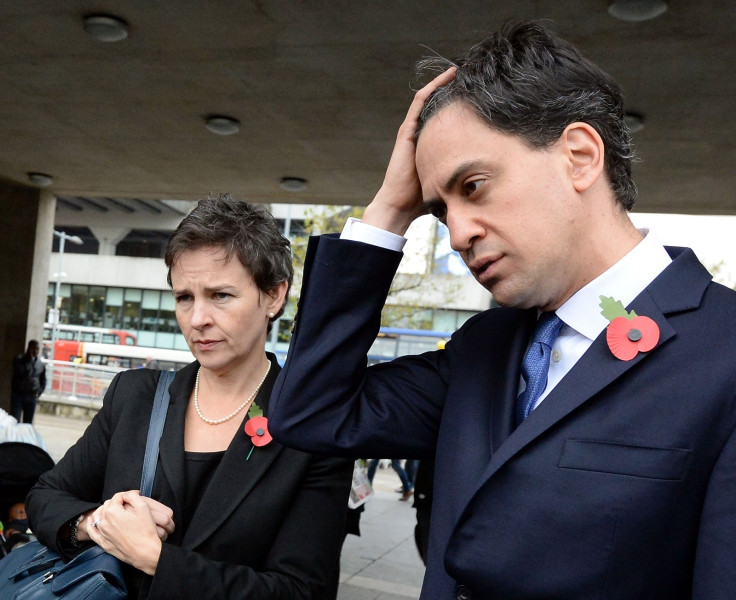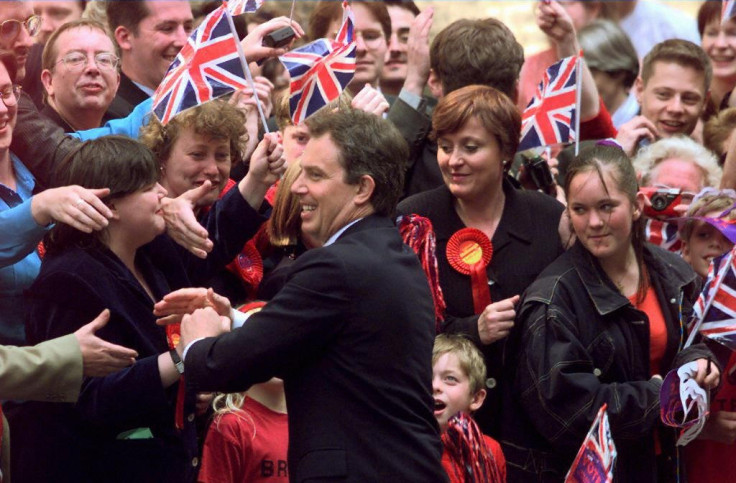Ed Miliband was a disaster but that doesn't mean Labour should ditch fight against inequality

Since Labour's devastating General Election defeat three weeks ago a glut of Labour politicians and pundits have been trying to distance themselves from policies which until recently they wholeheartedly endorsed. Ed Miliband, who a short time ago was always right, is today always wrong.
Meanwhile despite almost the entire commentariat calling the election the wrong way, the same scribblers think they know exactly why the former Labour leader managed to misjudge things quite so badly.
Which let's be honest he did. Miliband made a number of embarrassing and regrettable errors (forgetting to talk about the deficit at conference, anyone?) which ultimately led to Labour's crushing electoral defeat. Yes he was weird; but his bigger problem was a fondness for half-baked and piecemeal market interventions. David Cameron had a long-term economic plan whereas Miliband had a 20-month price freeze.
But Miliband did get one thing right: he understood the corrosive effect of economic inequality on the life chances of those on low and middle incomes. In fact, he was the first major party leader for 30 years to take the issue sufficiently seriously. As Miliband put it in his Hugo Young Lecture last year, "tackling inequality is the new centre ground of politics".
Or at least it ought to be. Now that Miliband is gone there is a danger that in seeking to ditch everything he stood for, Labour's budding leadership candidates will throw out the good along with the bad like a snake casually shedding its skin.
Yet for all the talk about moving on from Miliband's apparently 'anti-aspirational' manifesto, it will take a lot more than Blairite platitudes to make extreme inequality disappear. The five richest families in Britain now own more than the poorest 20 per cent combined. Meanwhile a million people had to use a food bank to eat last year while London is the unpaid internship capital of Europe.
This isn't only a concern for the poor; the middle classes are falling behind too. A property millionaire is now created every seven minutes in Britain, mainly in London, turning what were once family homes into 'investments' and 'portfolios', shutting out first-time buyers in the process.
If the pundits are to be believed, addressing this sorry state of affairs is the equivalent of inviting the Red Army to water its horses in the Thames. Instead they admonish Labour to embrace the 'centre ground', a peculiar position which always conveniently matches the politics of the person making the argument.
New Labour 2.0 isn't the answer
So what would a reversion to the centre ground look like? Perhaps it would resemble Britain under New Labour, where economic inequality rocketed. Official figures show that between 1997 and 2010 the real-terms gap in incomes between the highest and lowest earners grew by £237 per week. For every 1,000 adults, the income of the very richest person rose on average by 4% above inflation each year between 1996-97 and 2004-05, according to a 2008 study by the centre-left Institute for Public Policy Research. For those on middle incomes during the same period, growth averaged just 2%.
None of this was accidental. New Labour accepted the extravagant pay packets of Britain's super-rich in the belief that it didn't matter how much the rich accumulated - as long as the proceeds of growth were used to help the poor.

This was certainly progress on the callous 'me-first' Conservatism of the 80s and early 90s, where the poor were unfavourably contrasted with their 'wealth creating' counterparts in the City as feckless and dole-scrounging layabouts. But the mistake of the New Labour years was to see equality of opportunity and large inequalities of outcome as separate things which could be reconciled. New Labour was 'intensely relaxed' about the filthy rich because it believed that by lifting up the poorest - and leaving the oligarchs alone - it could deliver Britain over to meritocracy.
But it couldn't, and for one very simple reason: inequality helps to negate social mobility as the rich seamlessly pass on their advantages to their children. Unequal societies not only have poorer outcomes in terms of health and education and higher prison populations than their more egalitarian counterparts, but they have worse levels of social mobility.
Of the rich countries listed by the OECD, the three in which men's earnings are most likely to resemble their fathers' are the UK, Italy and the US - in that order. Of the OECD countries Britain also just happens to be the fourth most unequal – only Mexico, Israel and the US have a more unequal distribution of wealth.

'Businesses are telling me they want reforms that will address the implications of red tape and I fully support the need for restructure, with small businesses and entrepreneurs at the forefront. A referendum in which Britain stays in a reformed European Union, as Cameron has suggested and is already discussing with European leaders.'
Read James Caan's take on the EU referendum by clicking here.
The picture in Britain is a sobering one. Just 7% of Britons are privately educated, yet 30% of MPs, 71% of senior judges and 44% of people on the Sunday Times Rich List went to fee-paying schools.
The privileges of the parents become the privileges of the children. Or as the previous coalition government's social mobility commission put it, it is tantamount to 'social engineering' in favour of the rich.
A Britain where people rise through hard work and ability – rather than because they were born to gilded parents – is incompatible with extreme levels of inequality. And thus for all the talk of Labour losing 'middle England' under Ed Miliband, it would be a mistake to ditch the fight against inequality in a misplaced rush to the right. Or at least it would if 'aspiration' is to be more than a Blairite buzzword.
James Bloodworth is editor of Left Foot Forward, one of the UK's top political blogs. You can follow James @J_Bloodworth and his blog @LeftFootFwd.
© Copyright IBTimes 2024. All rights reserved.









